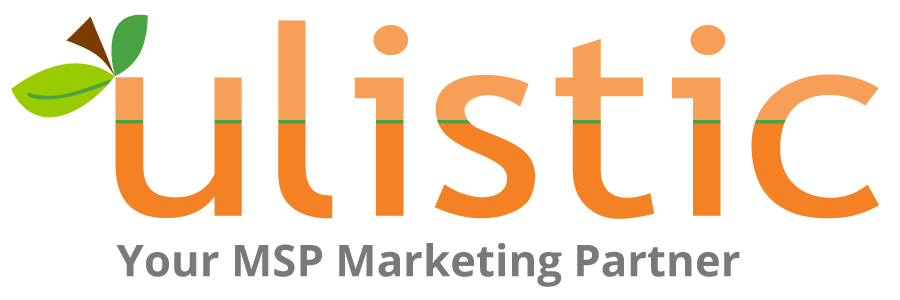Google's July 2021 SEO Algorithm Update: What You Need To Know As An MSP Marketer
Google constantly releases SEO updates, and its July 2021 link spam update is set to be released in the next few days. The update will create significant changes in rankings due to the normal shifting of search results. The link spam update targets spammy links, which are mostly created through cheap guest posting services. The update will work more broadly and across multiple languages.
According to Google, it continually works to improve the quality of the search results, which explains the release of the update in trying to fight link spam. The company projects that the algorithm is highly effective in identifying link spams, and sites taking part in link spam will see notable changes in Search. The update's algorithms will re-assess the links and nullify them.
Instead of penalizing them, Google will ignore those links and not count them towards ranking. However, this might feel like a penalty for some sites. Think of what will happen if Google nullifies or ignores some links that have been helping your site rank well in Google Search. If you notice a drop in your ranking in the next few days, it could be related to this new update.
Best Practices
In relation to the link spam update, Google outlines some best practices that users should observe. You are advised to qualify links appropriately when linking to other sites. Remember to add tags to links if they have a value exchange between two domains.
Google, in particular, singles out links from guest and sponsored content. The recommendations are:
- Qualify affiliate links with rel="sponsored" whether they were created dynamically or manually.
- Sponsored links, including paid placements and advertisements, should be marked with rel="sponsored" value.
- Links coming from guest posts should be marked up with rel="nofollow" value.
The Problem with Link Spam
Many web creators want to monetize their sites and blogs. Unfortunately, most end up creating outbound links that don't help much in making their sites rank high. Instead, they overdo these links and fail to annotate them correctly, contributing to a violation of Google's quality guidelines. Well-intentioned but short-sighted link building has been the leading cause of significant drops in ranking and traffic.
It's worth remembering that not all links are created equal. At the back of SEO, Google identifies what it calls spam backlinks. These refer to links to your page placed on irrelevant websites and based on some ill-fitted anchor text.
Most of these bad backlinks come from cheap guest posting services, link networks, and cheap Fiverr gigs. If you, for example, discover a myriad of random Russian (.ru) or Chinese (.cn) domains suddenly linking back to your site, it could be a strong indication of low-quality backlinks.
However, the quantity is crucial here. A handful of spam backlinks to your site probably already exist. If there are too many of them, Google will interpret this to mean that you're trying to use shady SEO tactics to boost your rankings.
When this happens, Google will take action against you, just like the link spam update is supposed to do. This is also what the Google Penguin algorithm was for; to fight against bad links while cleaning up the internet to make it a better place. Your website could be adversely affected in the process.
Types of Backlinks to Avoid
At this point, you're probably wondering how to approach back-linking without violating Google rules. As a guideline, here are some link spams to avoid, even though you may not be aware of the danger they pose:
- Cleansing domains: this is a dynamic link manipulation strategy that you should avoid at all costs. Building domains that redirect to your primary domain is traditionally safe, but guarantees you no future success.
- Poorly executed blog posts and blog networks: Google is against blog networks where members pay to contribute content for the sake of back-linking to their sites. While guest blogging is a legitimate way of back-linking, low-quality guest blogging is closely similar to blog networks.
- Article marketing spam: most new SEO is usually based on what seems like article linking addiction. Content that lacks mental effort and creativity but has many links to your site will do more harm than good.
- Site-wide links: avoid using site-wide footer links because most of them point to external sites and are either paid links or Google Bombs.
- Paid links in content: if you must use paid links, you better be sure what you are doing, and everyone involved in those links must be aware of the penalties that could follow for buying links and misusing them.
- Social bookmarking and sharing sites: links from most social bookmarking sites carry no value. Using dozens of them may not even be effective enough to get the page crawled.
These are just a few of the commonly used strategies in back-linking that you should avoid unless you know how to escape Google penalties. If you are already wondering what kind of back-linking works, keep reading.
Back-linking Works Best When Done Naturally
Don't give up on back-linking to rank your site. The strategy still works, and especially if you do it the natural way. Natural backlinks have a relevant anchor text, integrating with page content in a way that creates meaning.
They also provide value for your reader, providing additional information to increase their knowledge base. Besides, just as their name suggests, natural backlinks should easily and naturally integrate with the surrounding content on the target page. Depending on the goals you have for your business, you can quickly determine if a link is worth pursuing and if it adds any value to your site, naturally.
Natural back-linking takes time and effort and requires patience. You can subscribe to a service like helpareporter.com and contribute stories as you build your brand for the best results. Alternatively, you can hire the services of SEO professionals to help you boost your site ranking and traffic to your site. One such service provider is Ulistic, where we help MSPs build SEO links and rank higher the right way. Contact us today for further consultation.



